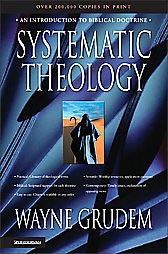Some say “ignorance is bliss”, but in discussions of theology, this is definitely not the case. Especially in fundamentalist Baptist circles, to bring up the topic of Calvinism is always to start a fiery discussion. And one of the chief factors in making this topic so heated and controversial (you could call it emotional) is ignorance.
As a former non-Calvinistic (some would say Arminian) fundamental Baptist, at one time I was quite ignorant concerning Calvinism. And one of the points Calvinists believe which was most repugnant to me was their belief that regeneration precedes faith. Such a doctrine seemed to make faith not essential. It made the human response less important. As a fundamentalist, I prized the “sinner’s prayer” and “altar call” methodology, and everything about this strange teaching about regeneration seemed wrong.
If you had told me then, while I was a non-Calvinist, that Baptists historically have believed in this doctrine, if you had told me my Baptist forbears were almost all Calvinists, I would have been astounded. And I am sure many other fundamental Baptists still would share my amazement. I have even seen some people on one particular fundamentalist forum site claim that the belief that regeneration precedes faith is a 20th Century innovation of “neo-Calvinists” like Piper and Mohler. And surely there are many fundamentalists all too eager to believe that such is the case. (Case in point, the widespread fundamental belief that Charles Spurgeon wasn’t really a Calvinist, and that he didn’t really believe in all 5 points of Calvinism—even though he wrote a booklet defending all 5 points!)
With the above background, let me provide a quote from the 1833 New Hampshire Baptist Confession, one of the earliest Baptist Confessions of Faith in America. I recently stumbled upon this quote, and was delighted with what I found. In no uncertain terms, it declares that the Baptists who developed this Confession, believed that regeneration precedes faith. Let me quote from section 7, “Of Grace in Regeneration”.
We believe that, in order to be saved, sinners must be regenerated, or born again (Jn. 3:3, 6-7; 1 Cor. 1:14, Rev. 8:7-9; 21:27); that regeneration consists in giving a holy disposition to the mind (2 Cor. 5:17; Ez. 36:26; Deut. 30:6; Rom. 2:28-29; 5:5; 1 Jn. 4:7); that it is effected in a manner above our comprehension by the power of the Holy Spirit, in connection with divine truth (Jn. 3:8; 1:13; Jam. 1:16-18; 1 Cor. 1:30; Phil. 2:13), so as to secure our voluntary obedience to the gospel (1 Pet. 1:22-25; 1 Jn. 5:1; Eph. 4:20-24; Col. 3:9-11); and that its proper evidence appears in the holy fruits of repentance, and faith, and newness of life (Eph. 5:9; Rom. 8:9; Gal. 5:16-23; Eph. 3:14-21; Matt. 3:8-10; 7:20; 1 Jn. 5:4, 18).
If you are wondering what I am seeing here, let me make it simple. The above says that the “fruits” of regeneration are “repentance, and faith, and newness of life”. In other words, regeneration comes first and the result is repentance, faith, and newness of life. Regeneration precedes faith.
Just to prove that this doctrine was historically held by most Baptists does very little in proving that it is a correct and Biblical doctrine, I know. If you would like an explanation and defense of this doctrine, see my attempt in this post.
 Just a quick post here. This week in an exchange of emails with one of my readers, a phrase was brought up that has stuck with me. The gentleman mentioned that so many people strive for “like-mindedness” but what is most important is “like-heartedness“.
Just a quick post here. This week in an exchange of emails with one of my readers, a phrase was brought up that has stuck with me. The gentleman mentioned that so many people strive for “like-mindedness” but what is most important is “like-heartedness“. Well, I have been exceptionally busy this week and have not kept up on the blogosphere (or contributed to it) as much as I’d like. So I thought I’d put together a good blogroll for you all. And in truth, there really were a lot of good posts out there to highlight. Some of these, particularly the last two, I could devote whole posts to, but won’t due to time constratints.
Well, I have been exceptionally busy this week and have not kept up on the blogosphere (or contributed to it) as much as I’d like. So I thought I’d put together a good blogroll for you all. And in truth, there really were a lot of good posts out there to highlight. Some of these, particularly the last two, I could devote whole posts to, but won’t due to time constratints.